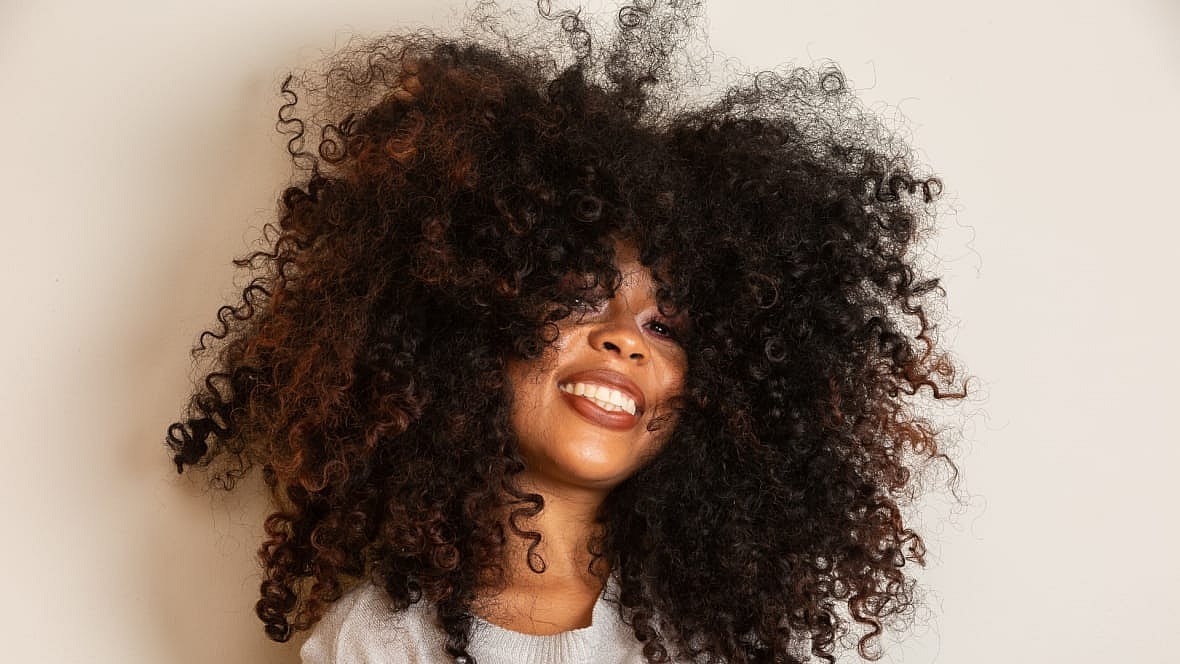
Editor’s note: The following article is an op-ed, and the views expressed are the author’s own. Read more opinions on theGrio.
Know thyself. These words were written on the monuments and walls of our African ancestors for a reason. Long ago, these ancient luminaries knew well the inherent and transformative value of a knowledge of self, the indelible significance of knowing your own culture, where you come from and who you are. Without such knowledge, it would be very hard to know where you are going.
That acknowledged, how can a group of people who were kidnapped from their native land, brutally enslaved in an unfamiliar place and regarded by law as inhuman begin to know themselves? Especially when cultural aspects as natural as our own hair have been targeted to further discriminate against us and prevent us from embracing our own culture?
Last week, Arizona Governor Katie Hobbs signed an executive order to end race-based hair discrimination, stating, “For far too long Black women, men, and children have been deprived of educational and employment opportunities for wearing their natural hair… Today, I am issuing an Executive Order that demonstrates the need to prioritize the protection of culture, and allows individuals to show up as their true selves without being subjected to race-based hair discrimination.”
Hobbs’ law is based on the CROWN Act — which stands for “Creating a Respectful and Open World for Natural Hair” — a legal framework that prohibits race-based hair discrimination, a far-too-common practice of denying jobs and school opportunities based on natural hair texture or cultural expression. The 2023 CROWN Workplace Research Study found that approximately two-thirds of Black women change their hair for a job interview due to past or potential discrimination. Since the act’s 2019 introduction by the Crown Coalition in California, similar laws have been adopted in 20 states and by the U.S. House of Representatives.
So progress is being made. But let’s back up for a minute to consider some more fundamental questions: What is it about a Black woman’s hair in particular that would require such a measure of legal protection in the first place? And how is this consistent with ongoing measures to keep Black folks from embracing their own culture, from knowing themselves?
Unfortunately, such measures are far from new. The Tignon laws of the 18th century were implemented by Louisiana Gov. Esteban Rodriguez Miró to curb cultural expression and “excessive attention to dress” in public by women of African descent. Concerned by the beauty of these women; their “exotic” hairdos adorned with beads, jewelry, and various accents, and, more importantly, the competition they posed to white women for status and male suitors, these laws made it illegal for Black and Creole women to appear in public without a tignon or headwrap. Though crafted to deny a group of people their culture and beauty, these women resisted and did what Black folks have always done — they flipped the script and turned the tignon into a fashion statement by rocking it in bright colors, accenting them with elaborate fabrics and jewels, and wrapping them in nontraditional ways. Even with the cessation of Tignon laws after the 1803 Louisiana Purchase, many women of African descent continued to wear headwraps as a symbol of resistance to white colonialism and as a vibrant expression of our own identity.
This type of creative resistance has always been a part of African-American culture, a way of ensuring important aspects of our stolen legacy stay with us, be it the transmission of cultural remnants through such activities as song (with coded messages), food (soul food), and dance (hidden warrior training/capoeira). Apparently, despite our current status as legal citizens, these types of creative measures are still required to protect our cultural expression, our living knowledge of self. For as long as the dominant culture can engage in a daily de facto process of cultural suppression that “criminalizes” something as natural to us as our own hair, we are moving closer to a day — similar to the current banning of books in American education — when our cultural representations are wholly stripped from us and our collective identity, our active knowledge of self, is no more.
The CROWN Act is aimed at preventing such discrimination and erasure. It employs the legal process, the same process that once declared us inhuman, to protect something that should not, particularly in the 21st century, have to be protected — our own natural identity. It is buffered by our collective experience as a people; one based in African soil and forged by the long, brutal road we have traveled in our American sojourn, and one magnified by the many tribulations and triumphs we have experienced along the way.
Through it all, what has helped keep us going is our consistent refusal to give up our unique culture and identity, our ongoing commitment to knowing, honoring and, ultimately, loving ourselves.
As author Byron Katie once quipped, “It is not your job to like me — it is mine.”

Stephanie Robinson, Esq. is a lecturer on law at Harvard Law School where she teaches on issues of democracy, media, and race, and their intersections with the law. She is the president of Sly Bear Media Group. She is the former chief counsel to Sen. Edward M. Kennedy and was the political and social commentator for “The Tom Joyner Morning Show,” offering her perspective weekly to over 10 million people on the day’s most pressing issues.
TheGrio is FREE on your TV via Apple TV, Amazon Fire, Roku, and Android TV. Please download theGrio mobile apps today!

